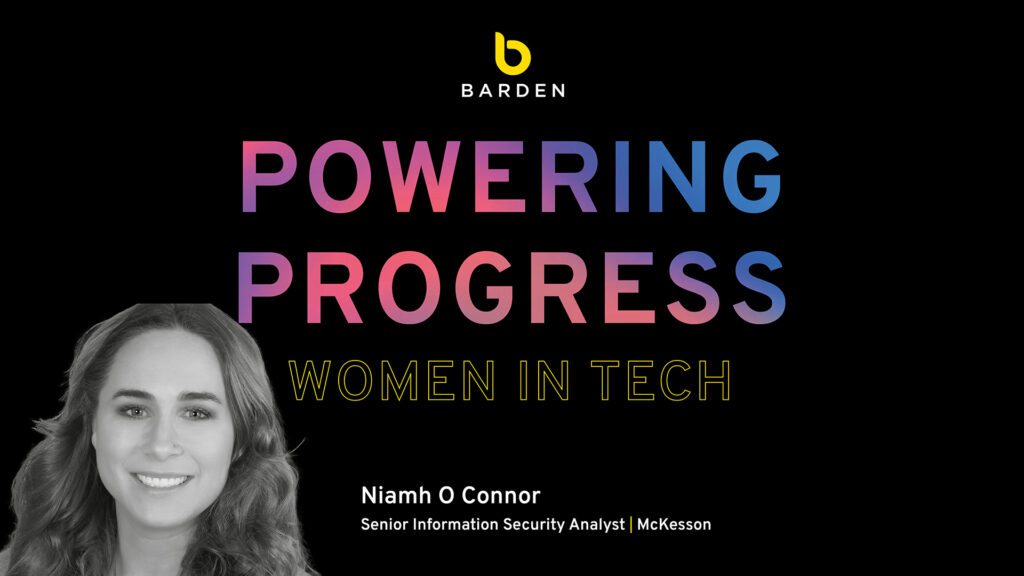What inspired you to pursue a career in Information Security?
I am passionate about learning new things, challenging myself, and stepping out of my comfort zone. Cybersecurity keeps you constantly on your toes, which I find very appealing. Additionally, the fast-paced and ever-evolving nature of the IT field makes it an exciting and dynamic space where there’s never a dull moment.
What do you consider to be the specific challenges and opportunities for women in the technology field? How did you overcome those challenges?
It’s not just in technology; I feel that as women, in general, we tend to doubt ourselves more than our male counterparts. I believe this stems from societal influences. Often, women feel they can’t show too much emotion without being judged, whereas men seem to express themselves more freely and have a stronger sense of self-belief.
I try to teach my daughter the opposite. I always tell her, “You can do anything you want—believe in yourself.” Building her confidence is something I prioritise. Still, I have noticed this pattern everywhere. I’ve heard countless stories from female friends and family members about being in professional situations where they didn’t ask for what they wanted, while men in the same positions were unafraid to go for it.
I have learned a lot from these experiences and from working with men, especially how to be assertive. It has made me incredibly resilient, and now I’m not afraid to ask for what I want. It’s a quality I value deeply and encourage other women to embrace. But it’s remarkable how deeply ingrained these differences are.
What has been your experience working in a male-dominated field, and how have you managed and navigated any obstacles related to gender dynamics during your career?
I have always worked in traditionally male-dominated industries. When I graduated from university, there was a recession, and I couldn’t find a job related to my degree. As a result, I started working in sales, where I was often the only woman on a team of 10 or more men. I stayed in that role for 2.5 years.

At the time, comments about the manager’s bias against women were treated somewhat as a joke, almost as if it were just a known and accepted fact of his character. While the CEO was supportive and I didn’t believe he condoned this behaviour, there weren’t clear measures in place to address or prevent such situations.
After this incident, I worked even harder, and a few months later, I secured an even better job opportunity within that company, where I ultimately thrived. I always tell my daughter, “Be so good, they can’t ignore you!” While it’s true that, as women, we often have to work twice as hard as men to be recognised, I’m optimistic that progress is being made and that such outdated workplace dynamics are gradually becoming a thing of the past.
The tech industry is known for being fast-paced and demanding. How do you manage work-life balance, and what advice would you give to others in similar roles?
Yes, the tech industry certainly demands resilience!

Early in my career, I often felt guilty for missing school plays and events due to my professional commitments, as I was trying to prove myself at work.
I overcame these challenges by reminding myself, “I am doing the best I can,” and striving to be less of a perfectionist in both aspects of life. I am fortunate that at McKesson, I enjoy an excellent work-life balance, and the company culture is the best I have experienced. I genuinely believe that work-life balance needs to be embedded in company culture. If you don’t feel comfortable talking to your manager about working excessive hours, missing lunches or breaks, or neglecting your wellbeing, then something is wrong.
That level of flexibility has made me so much happier and has enabled me to thrive in my career. It has taken me time to learn to put boundaries in place but having such a supportive team and manager makes it a lot easier to have a great work life balance.
Did you have any role models or mentors who significantly influenced your career in technology? How important do you think mentorship is for women in tech?
I think having a mentor makes a huge difference. I have had two female managers who have significantly impacted my career by recognising the potential that I hadn’t seen in myself. Every time I’ve been promoted, it has been because I had a female manager who encouraged me. They have been instrumental in building my confidence and helping me realise my potential.
I think women, especially Irish women, can be overly modest. We are hesitant to say, “I’m great at this.” It’s something we need to work on compared to our US counterparts. Thus, a good mentor can be hugely influential. They say people don’t leave bad companies; they leave bad managers, and it’s so true. Right now, I am really lucky to have both a great mentor and a supportive team at McKesson. It’s such a positive environment to work in, and that makes all the difference.
How important is early education in inspiring females to pursue careers in STEM, and what steps can we take within our education system and beyond to make STEM fields more accessible and appealing to them?
I have noticed that some schools are introducing extracurricular activities like coding, which I think is an excellent way to inspire students to pursue careers in STEM fields. At McKesson, we also launched an initiative last year where we visited schools in Cork to educate students about cybersecurity and online safety. When I presented, I was joined by four other women who demonstrated to the young girls that there are women thriving in IT.
Outside of school, having a good role model is crucial. My dad used to show my daughter how to make and fix things when she was younger, and now she has chosen woodwork as one of her subjects in school—something that wasn’t even offered at my school. This change shows how times are evolving. The most important factor is having visible role models in STEM. I always tell my daughter that she can be anything she wants, and I truly mean that!
What advice would you give young women who are interested in pursuing a career in technology?
I would encourage them go for it; women can be whatever they want – the sky is the limit! Look at soccer, for example: in England and Ireland, the women’s national teams have done better than the men’s recently.



 Jump Back
Jump Back

